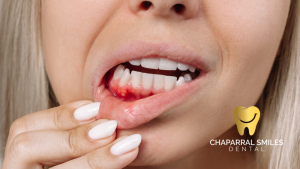Tooth sensitivity is a common dental problem that affects millions of people, especially seniors. It is characterized by a sharp, sudden pain or discomfort in the teeth when exposed to certain stimuli, such as hot or cold temperatures, sweet or acidic foods, or even cold air. This sensitivity occurs when the underlying dentin, which is the layer of the tooth beneath the enamel, becomes exposed. Dentin contains tiny tubules that lead to the nerves of the tooth, and when these tubules are exposed, it can lead to sensitivity and discomfort. Seniors are particularly prone to tooth sensitivity due to a variety of factors, including age-related gum recession, enamel wear, and other dental issues.
Tooth sensitivity can be a significant source of discomfort and can impact a senior’s quality of life. It can make it difficult to enjoy certain foods and beverages, and it can also lead to anxiety about eating or drinking anything that might trigger pain. Fortunately, there are ways to manage and treat tooth sensitivity, allowing seniors to find relief and improve their overall oral health.
Key Takeaways
- Tooth sensitivity is a common dental problem characterized by discomfort or pain when teeth are exposed to certain stimuli.
- Seniors may experience tooth sensitivity due to factors such as receding gums, enamel erosion, and age-related dental conditions.
- Common triggers for tooth sensitivity include hot or cold foods and drinks, acidic foods, and sugary foods.
- Managing tooth sensitivity involves using desensitizing toothpaste, avoiding triggers, and practicing good oral hygiene.
- Dental treatments for seniors with tooth sensitivity may include fluoride treatments, dental bonding, or gum grafting, while lifestyle changes can also help reduce sensitivity. It’s important to see a dentist if tooth sensitivity persists or worsens.
Causes of Tooth Sensitivity in Seniors
There are several factors that can contribute to tooth sensitivity in seniors. One common cause is gum recession, which is a natural part of the aging process. As we age, our gums tend to recede, exposing the roots of the teeth. This can lead to increased sensitivity, as the roots do not have the same protective enamel covering as the rest of the tooth. Additionally, seniors may also experience enamel wear over time, which can further expose the dentin and lead to sensitivity.
Other potential causes of tooth sensitivity in seniors include untreated cavities, cracked teeth, and dental procedures such as teeth whitening or fillings. These issues can all contribute to the exposure of the dentin and lead to increased sensitivity in the teeth. It’s important for seniors to be aware of these potential causes and to seek treatment from a dentist in order to address the underlying issues and find relief from tooth sensitivity.
Common Triggers for Tooth Sensitivity
There are several common triggers that can exacerbate tooth sensitivity in seniors. One of the most common triggers is hot or cold temperatures, such as drinking a hot cup of coffee or biting into an ice cream cone. The sudden change in temperature can cause discomfort and pain in sensitive teeth. Similarly, sweet or acidic foods and beverages can also trigger sensitivity, as they can cause irritation to the exposed dentin.
Another common trigger for tooth sensitivity is aggressive brushing or using a hard-bristled toothbrush. This can wear down the enamel and expose the dentin, leading to increased sensitivity. Additionally, clenching or grinding the teeth can also contribute to sensitivity, as it can cause enamel wear and lead to exposure of the dentin. It’s important for seniors to be mindful of these common triggers and to take steps to minimize their impact in order to reduce tooth sensitivity.
How to Manage Tooth Sensitivity
| Topic | Metrics |
|---|---|
| Prevalence | 1 in 8 adults suffer from tooth sensitivity |
| Causes | Exposed dentin, tooth decay, gum disease, teeth grinding |
| Symptoms | Sharp pain when consuming hot, cold, sweet, or acidic foods |
| Treatment | Desensitizing toothpaste, fluoride treatments, dental procedures |
| Prevention | Proper oral hygiene, avoiding acidic foods, using a soft-bristled toothbrush |
There are several ways that seniors can manage tooth sensitivity and find relief from discomfort. One of the most important steps is to practice good oral hygiene, including brushing with a soft-bristled toothbrush and using a desensitizing toothpaste. These toothpastes contain compounds that help to block the transmission of sensation from the tooth surface to the nerve, providing relief from sensitivity.
In addition to using desensitizing toothpaste, seniors can also benefit from using a fluoride mouthwash or gel to help strengthen the enamel and reduce sensitivity. It’s also important for seniors to avoid aggressive brushing and to use gentle, circular motions when brushing their teeth. This can help to minimize further enamel wear and reduce sensitivity.
Another important aspect of managing tooth sensitivity is to be mindful of dietary choices. Seniors should try to avoid foods and beverages that are known triggers for sensitivity, such as hot or cold temperatures, sweet or acidic foods, and carbonated drinks. By being mindful of these triggers, seniors can reduce their risk of experiencing discomfort from tooth sensitivity.
Dental Treatments for Seniors with Tooth Sensitivity
For seniors who are struggling with persistent tooth sensitivity, there are several dental treatments that can provide relief. One common treatment is the application of a fluoride varnish or gel by a dentist. This can help to strengthen the enamel and reduce sensitivity in the teeth. Another option is dental bonding, which involves applying a tooth-colored resin to the exposed dentin in order to provide a protective barrier and reduce sensitivity.
In some cases, a dentist may recommend a dental crown or inlay/onlay to cover and protect a tooth that is particularly sensitive. These restorations can help to provide additional protection for the tooth and reduce discomfort. Additionally, for seniors with severe gum recession, a gum graft may be recommended in order to cover the exposed roots and reduce sensitivity.
It’s important for seniors experiencing tooth sensitivity to seek treatment from a dentist in order to address the underlying causes and find relief from discomfort. A dentist can assess the individual’s oral health and recommend appropriate treatments based on their specific needs.
Lifestyle Changes to Reduce Tooth Sensitivity

In addition to dental treatments, there are also lifestyle changes that seniors can make in order to reduce tooth sensitivity. One important step is to avoid clenching or grinding the teeth, as this can contribute to enamel wear and increase sensitivity. Seniors who struggle with these habits may benefit from using a mouthguard at night in order to protect their teeth from damage.
Another lifestyle change that can help reduce tooth sensitivity is to limit consumption of acidic foods and beverages, such as citrus fruits and sodas. These items can erode the enamel and expose the dentin, leading to increased sensitivity. Seniors should also be mindful of their oral hygiene habits and avoid aggressive brushing or using a hard-bristled toothbrush.
It’s also important for seniors to maintain regular dental check-ups in order to monitor their oral health and address any potential issues before they become more serious. By staying proactive about their oral health, seniors can reduce their risk of developing tooth sensitivity and other dental problems.
When to See a Dentist for Tooth Sensitivity
Seniors who are experiencing persistent or severe tooth sensitivity should not hesitate to seek treatment from a dentist. It’s important for individuals to be proactive about addressing their oral health concerns in order to prevent further damage and find relief from discomfort. A dentist can assess the underlying causes of tooth sensitivity and recommend appropriate treatments based on the individual’s specific needs.
In addition to seeking treatment for persistent tooth sensitivity, seniors should also see a dentist if they experience any other concerning symptoms, such as bleeding gums, loose teeth, or changes in their bite. These issues could be indicative of more serious dental problems that require prompt attention.
Overall, it’s important for seniors to prioritize their oral health and seek regular dental care in order to maintain healthy teeth and gums. By staying proactive about their oral health, seniors can reduce their risk of developing tooth sensitivity and other dental issues, allowing them to enjoy a comfortable and pain-free smile for years to come.
If you are a senior experiencing tooth sensitivity, it’s important to seek emergency dental care if the pain becomes severe. In addition to understanding and managing tooth sensitivity, it’s also crucial to know how to provide additional care for your oral health as you age. For more information on emergency dental care and additional care for seniors, check out this article.





